“Cracking the Canine Culinary Code: Deciphering Why Your Dog Snubs His Bowl but Savors Your Plate”
## Introduction ##
Have you ever found yourself baffled by your furry friend’s finicky eating habits? You prepare a hearty bowl of dog food, only to watch your canine companion turn up his nose and beg for a taste of your dinner instead. It’s a common scenario among pet owners: “Why is my dog not eating his food but will eat human food?”
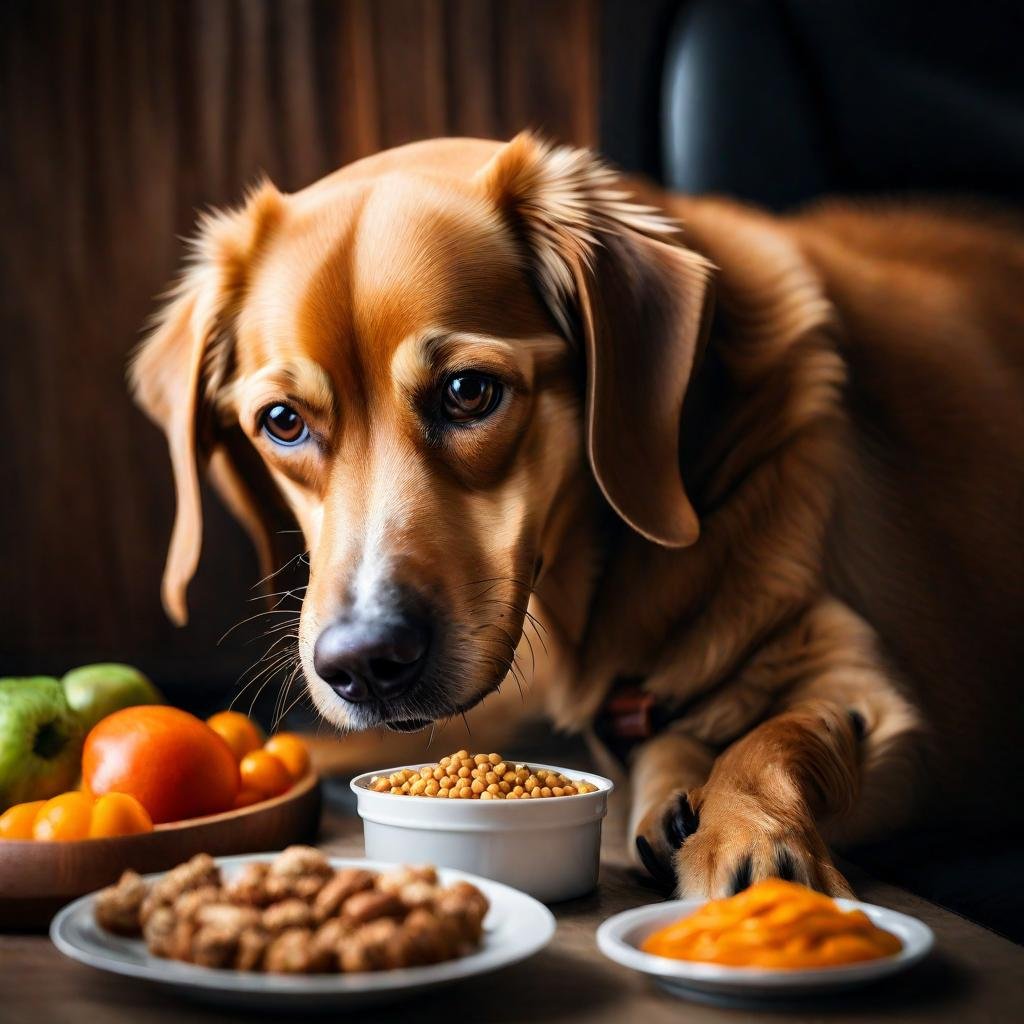
Table of Contents
The mystery behind your dog’s selective palate often leaves you scratching your head and wondering what goes on in that furry little brain. But fear not! You’re not alone in this culinary conundrum. Dogs, much like humans, have their own unique preferences and reasons for choosing one type of food over another.
In this journey through the canine culinary world, we’ll explore the fascinating reasons behind your dog’s reluctance to chow down on his designated kibble while eagerly eyeing your plate. From instinctual behaviors rooted in their ancestral past to the irresistible allure of human flavors and aromas, we’ll uncover the secrets behind your dog’s dining decisions.
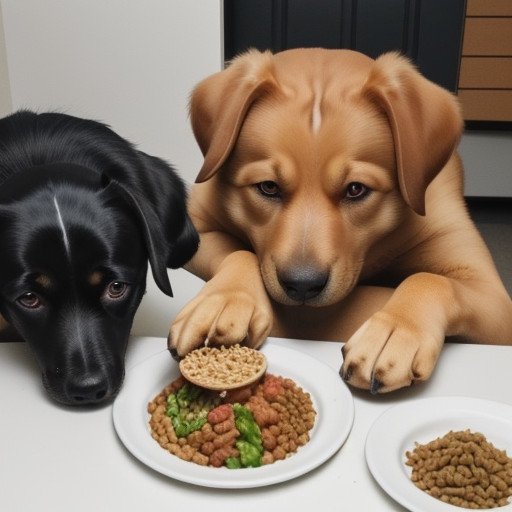
So, grab a treat for your furry friend and settle in as we embark on a quest to decode the age-old question: Why does my dog snub his food but gladly accepts mine? Get ready to unearth the answers and gain valuable insights into your canine companion’s unique eating habits!
## 1 of 5 ## Understanding Canine Behavior :
Understanding your dog’s behavior is key to unraveling the mystery behind his selective eating habits. Dogs, much like humans, have intricate thought processes and emotional responses that influence their dining preferences.
1. Instinctual Influences:
Dogs are descendants of wolves, with ingrained instincts that drive their behavior. In the wild, wolves hunt and scavenge for food, which shapes their eating patterns. Your dog’s preference for human food might stem from ancestral instincts to seek out diverse and potentially more nutritious options.
2. Sensitivity to Routine and Environment:
Dogs thrive on routine and are sensitive to changes in their environment. Stress, anxiety, or changes in their surroundings can affect their appetite. Your dog’s reluctance to eat his food but eagerness to indulge in human food could be a response to changes or stressors in his environment.
3. Social and Emotional Factors:
Dogs are highly social animals and form strong bonds with their human companions. Sharing food with you might be a way for your dog to strengthen your bond and feel more connected to you emotionally.
By understanding these aspects of canine behavior, you can better comprehend why your dog prefers human food over his own. It’s a fascinating journey into the mind of your furry friend, filled with love, instincts, and a dash of mystery.
## 2 of 5 ## Nutritional Differences between Dog Food :
Delving into the nutritional disparities between dog food and human food unveils insights into your dog’s dietary preferences and health considerations.
1. Composition and Nutritional Needs :
Dog food is specifically formulated to meet the nutritional requirements of dogs, containing essential nutrients like protein, carbohydrates, fats, vitamins, and minerals tailored to canine needs. Human food, on the other hand, may lack these specific nutrients necessary for your dog’s optimal health.
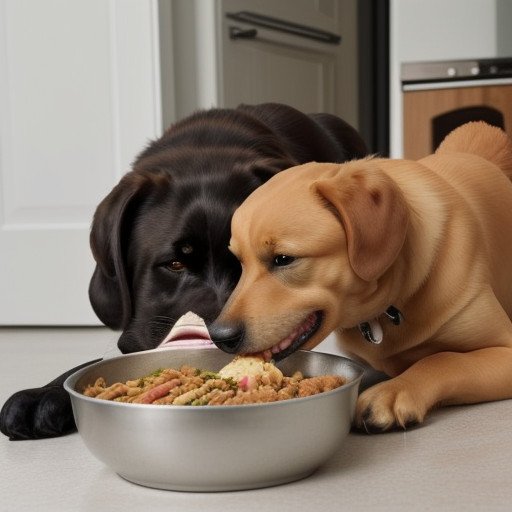
2. Ingredients and Nutritional Values:
Dog food typically contains ingredients such as meat, grains, vegetables, and supplements, providing a balanced diet for your furry friend. Human food, while delicious for us, may contain ingredients or additives that are unhealthy or even harmful to dogs, such as excessive salt, sugar, spices, or toxic substances like chocolate, grapes, or onions.
3. Impact on Health:
Feeding your dog human food regularly can lead to nutritional imbalances, obesity, digestive issues, and even long-term health problems. While the occasional treat or addition of safe human foods can be fine in moderation, relying solely on human food for your dog’s nutrition can pose serious health risks.
Understanding these nutritional disparities underscores the importance of providing your dog with a well-balanced diet formulated specifically for his needs. It’s not just about taste preferences; it’s about ensuring your furry companion leads a happy, healthy life.
## 3 of 5 ## Why Your Dog Prefers Human Food :
Unraveling the reasons behind your dog’s preference for human food sheds light on the fascinating dynamics of canine behavior and taste preferences.
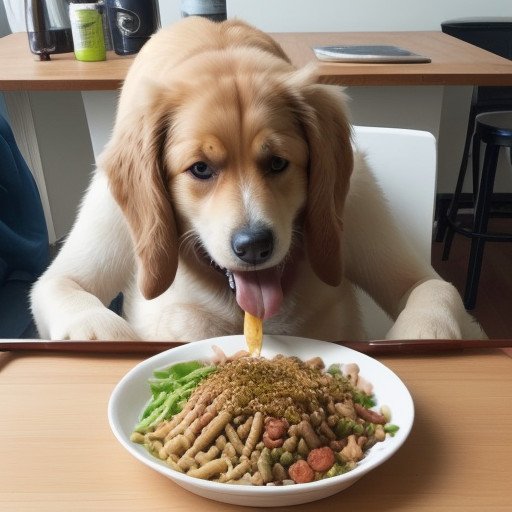
1. Taste Preferences and Variety:
Just like humans, dogs have taste preferences. Human food often boasts diverse flavors and textures that appeal to your dog’s palate, offering a tantalizing variety compared to the monotony of commercial dog food.
2. Texture and Aroma:
Human food is often more aromatic and enticing to dogs due to its rich smells and textures. The savory aroma of cooked meats or the crispy crunch of vegetables can be irresistible temptations for your canine companion.
3. Behavioral Reinforcement and Learned Behaviors:
Dogs are keen observers and quick learners. If your dog has received human food as treats or scraps in the past, he may associate the smell and taste with positive experiences, reinforcing his preference for human food over his own.
Understanding these reasons illuminates the complex interplay between sensory experiences, past associations, and natural inclinations that shape your dog’s dietary choices. It’s a window into your dog’s world of culinary delights and preferences, reminding us of the unique bond we share with our furry friends.
## 4 of 5 ## Potential Health Risks of Feeding Human Food to Dogs :
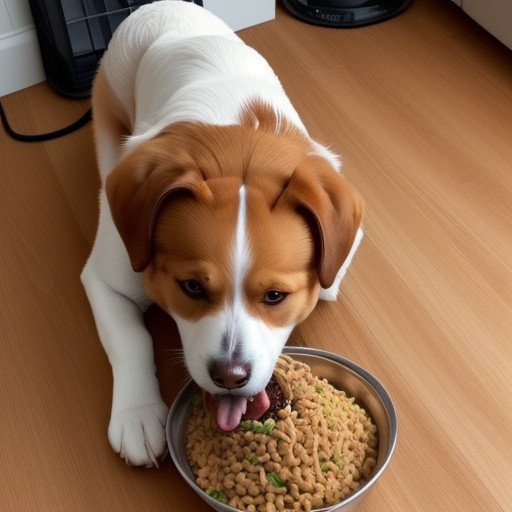
Exploring the potential health risks associated with feeding human food to dogs underscores the importance of mindful feeding practices and understanding canine nutritional needs.
1. Digestive Issues and Dietary Imbalance:
Dogs have sensitive digestive systems that may struggle to process certain human foods. Introducing unfamiliar or rich foods can lead to gastrointestinal upset, including diarrhea, vomiting, and discomfort. Additionally, human food may not provide the balanced nutrition that dogs require for optimal health, leading to dietary imbalances over time.
2. Toxicity Risks:
Some human foods are toxic to dogs and can pose serious health threats. Ingredients like chocolate, onions, garlic, grapes, and certain spices can be harmful and even fatal to dogs if ingested in sufficient quantities. It’s crucial to be aware of these toxic substances and avoid exposing your dog to potential dangers.
3. Obesity and Weight Management:
Human food tends to be higher in calories and fats compared to specially formulated dog food. Regular consumption of human food can contribute to weight gain and obesity in dogs, leading to a host of health issues such as diabetes, joint problems, and decreased lifespan.
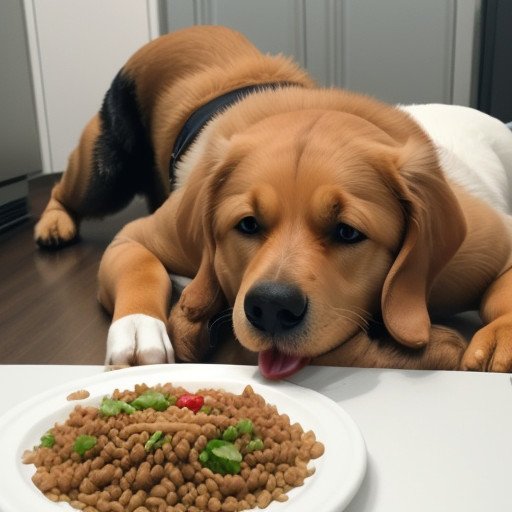
By recognizing these potential health risks, pet owners can make informed decisions about their dog’s diet and prioritize their furry friend’s well-being. It’s a reminder to treat our dogs with care and respect their unique dietary requirements, even when those pleading eyes beg for a bite of our own meals.
## 5 of 5 ## Strategies to Encourage Healthy Eating Habits :
Encouraging healthy eating habits in your dog involves understanding his preferences and providing nutritious options that meet his dietary needs. Here are some effective strategies:
1. Consistency in Feeding Schedule:
Establish a regular feeding schedule and stick to it. Consistency helps your dog anticipate meal times and encourages him to eat when food is offered.
2. Gradual Transitions to New Foods:
If introducing a new type of dog food, transition gradually by mixing it with the old food over several days. This helps prevent digestive upset and allows your dog to acclimate to the new taste and texture.
3. Enhancing Food Appeal:
Make mealtimes enjoyable by adding a splash of warm water, low-sodium broth, or a small amount of dog-safe toppings like plain yogurt or cooked vegetables to his food. These additions can enhance the aroma and flavor, making the meal more enticing.
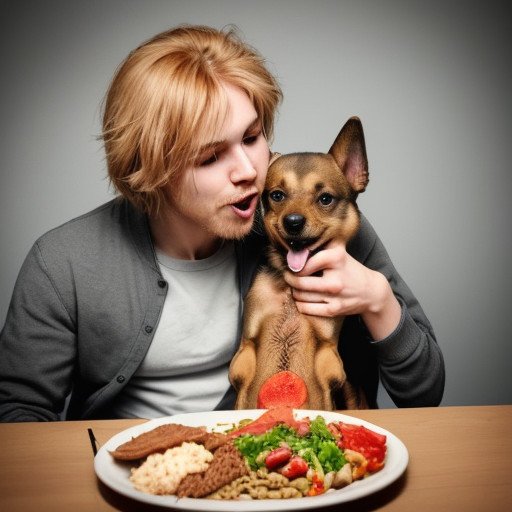
4. Interactive Feeding Solutions:
Consider using interactive feeding toys or puzzle feeders to engage your dog mentally and physically during meal times. This adds an element of fun and stimulates his natural hunting instincts.
5. Professional Guidance:
Consult with your veterinarian or a canine nutritionist for personalized dietary recommendations and guidance. They can help address specific dietary concerns and recommend suitable food options tailored to your dog’s needs.
By implementing these strategies, you can encourage healthy eating habits in your dog and reduce his inclination to prefer human food over his own. Remember, patience and persistence are key as you work to establish nutritious eating routines for your furry companion.
## Conclusion to Why is my dog not eating his food but will eat human food ##
As we conclude our exploration into the perplexing question of why dogs sometimes snub their own food in favor of human delicacies, it’s clear that our furry friends have complex tastes and preferences shaped by instinct, environment, and learned behaviors.

Understanding the reasons behind your dog’s selective eating habits, highlighted by the keyword “Why is my dog not eating his food but will eat human food,” is essential for fostering a healthy and fulfilling relationship with your pet. While it may be tempting to indulge your dog’s cravings with human treats, it’s crucial to prioritize his nutritional needs and well-being.
By recognizing the nutritional disparities between dog food and human food and acknowledging the potential health risks associated with feeding human food to dogs, we can make informed decisions about our pet’s diet and strive to provide him with balanced and nutritious meals tailored to his specific needs.
Ultimately, by implementing strategies to encourage healthy eating habits and seeking professional guidance when needed, we can nurture our furry companions and ensure they lead happy, healthy lives filled with delicious and satisfying meals.
You can read this post Healthiest Dog Food
“Cracking the Canine Culinary Code: Deciphering Why Your Dog Snubs His Bowl but Savors Your Plate” ## Introduction ## Have you ever found yourself baffled by your furry friend’s finicky eating habits? You prepare a hearty bowl of dog food, only to watch your canine companion turn up his nose and beg for a taste…
Why does my dog prefer human food over his own?
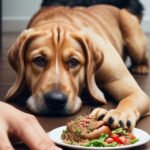
Understanding your dog’s preferences involves considering factors like taste, texture, and past experiences with different foods.
Is it safe to give my dog human food as treats occasionally?
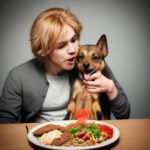
While some human foods are safe for dogs in moderation, others can be harmful or toxic. It’s important to know which foods are safe and to avoid potential risks.
What should I do if my dog refuses to eat his own food but begs for human food?

Try to identify any underlying reasons for your dog’s reluctance to eat his food, such as stress or changes in routine. Gradually transitioning to a new food or consulting with a veterinarian can help address this issue.
How can I prevent my dog from begging for human food at the table?

Training techniques, such as teaching your dog to stay in a designated area during meal times, and providing alternative rewards can help discourage begging behaviors.
Are there any human foods that are safe and nutritious for dogs to eat?

Some fruits, vegetables, and lean meats can be safe and healthy treats for dogs when given in moderation. However, it’s important to research and consult with a veterinarian to ensure they are safe for your specific dog
